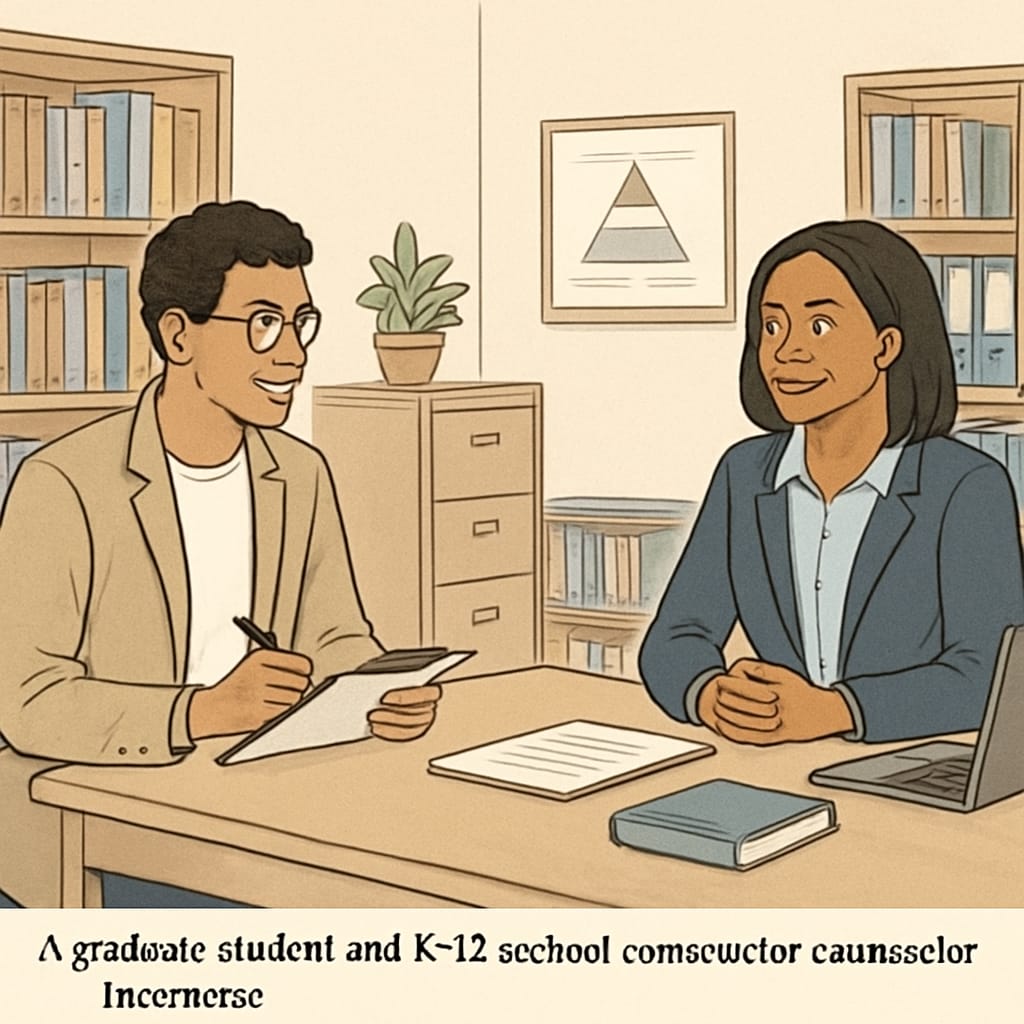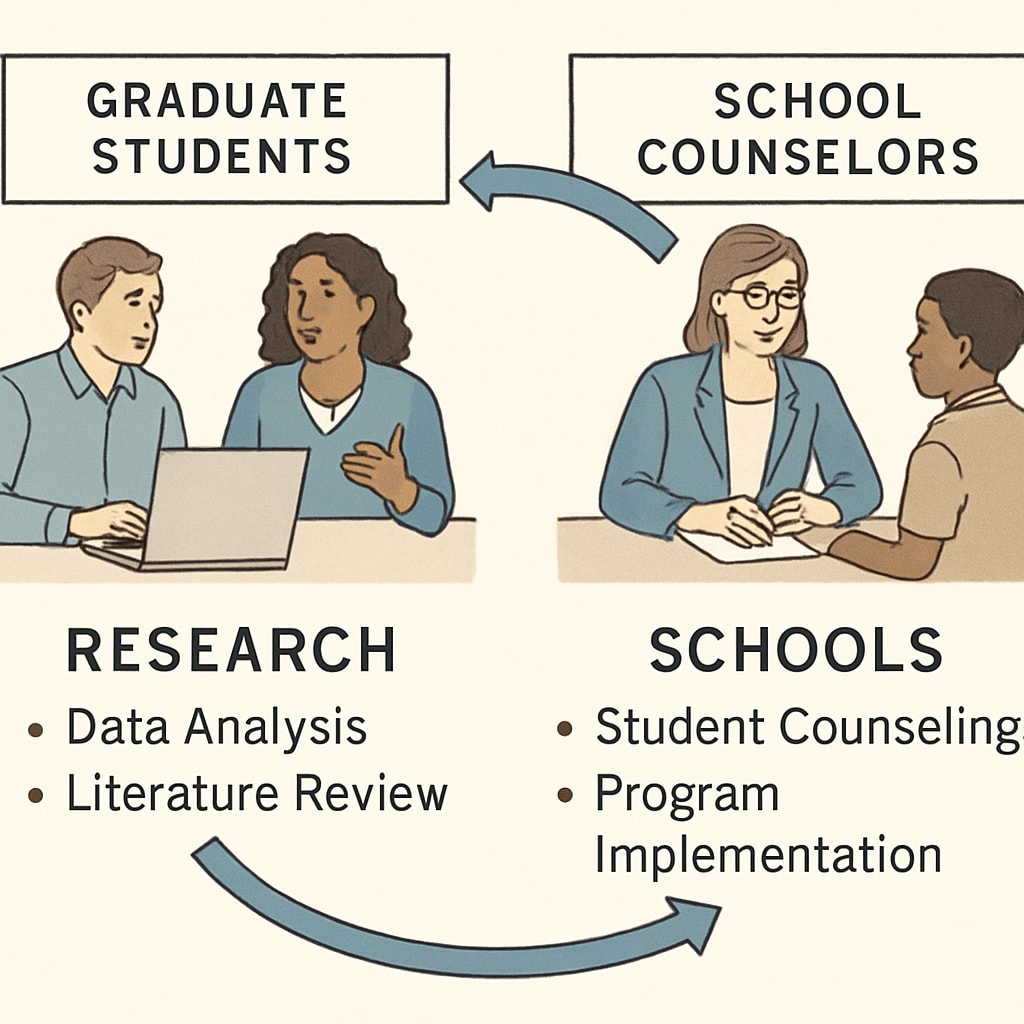Effective collaboration between graduate students and K12 school counselors (also known as educational advisors) is a critical yet often overlooked aspect of modern academic research. Through interviews and mutual sharing of insights, this partnership can bridge the gap between theoretical studies and practical application in schools. However, challenges such as time constraints, communication barriers, and differing priorities often hinder these interactions. By overcoming these obstacles, both parties can contribute to impactful educational advancements.

Why Collaboration Matters
Graduate students conducting research in education often rely on primary data to validate their hypotheses. K12 school counselors, who work closely with students and teachers, offer unique perspectives that can enrich academic studies. For instance, counselors provide real-world insights into student behavior, mental health trends, and classroom dynamics that may not be captured through theoretical research alone. As a result, interviews with counselors can enhance the relevance and applicability of academic findings.
Moreover, collaboration is mutually beneficial: counselors gain access to emerging research that can inform their practices, while graduate students receive firsthand accounts that strengthen the authenticity of their work. This two-way exchange fosters innovation and supports the ultimate goal of improving educational outcomes.
Challenges in Establishing Communication
Despite the clear advantages, initiating interviews between graduate students and school counselors often presents logistical and interpersonal challenges:
- Time Constraints: Counselors typically have packed schedules, making it difficult to allocate time for academic interviews.
- Communication Gaps: Academic jargon can sometimes create misunderstandings, requiring both parties to adapt their language for effective dialogue.
- Different Objectives: Graduate students prioritize data collection for research, whereas counselors focus on immediate student needs, which may lead to misaligned expectations.
Addressing these challenges requires careful planning, flexibility, and mutual respect for each party’s priorities.

Strategies for Successful Academic Interviews
To facilitate meaningful interaction between graduate students and K12 school counselors, the following strategies can be employed:
- Plan Ahead: Reach out to counselors well in advance and propose flexible interview schedules to accommodate their busy routines.
- Simplify Communication: Avoid overly technical language and clearly explain the purpose and relevance of the research to the counselors.
- Offer Reciprocity: Share preliminary findings with counselors during or after the research process to demonstrate the practical value of the collaboration.
- Use Digital Tools: Virtual interviews can save time and reduce logistical barriers, making it easier for counselors to participate.
- Build Trust: Respect the confidentiality of sensitive information and focus on creating a partnership rather than a one-sided interaction.
Looking Ahead: The Broader Impact
When graduate students and school counselors successfully collaborate, the benefits extend beyond individual research projects. This partnership contributes to a shared knowledge base that informs educational policies, supports teacher training, and enhances student welfare programs. For example, findings from such collaborations can be utilized to design targeted interventions for students struggling academically or emotionally.
As a result, fostering these academic interviews not only advances research but also empowers counselors with evidence-based strategies to improve their day-to-day practices. Therefore, the importance of bridging this gap cannot be overstated.
In conclusion, academic interviews between graduate students and K12 school counselors hold immense potential for transforming both research and practical education. By addressing challenges and implementing effective strategies, this collaboration can create a stronger foundation for future educational advancements.
Readability guidance: Use concise paragraphs, lists for summarizing key points, and transition words (such as however, therefore, and for example) to enhance flow. Keep sentence structures straightforward and avoid excessive passive voice.


